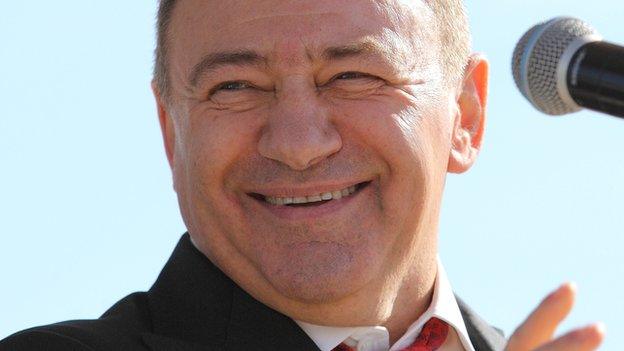Russian embargo: 'It's not the end of the world'
- Published
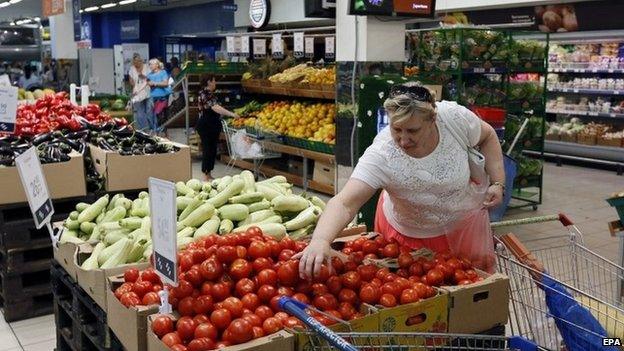
Russia has banned the import of meat, fruit, vegetables, fish, milk and other dairy items from the US, EU and other selected Western nations.
The move is a response to sanctions put on Russia over the conflict in Ukraine.
BBC News website readers have been in touch regarding the foods they will miss, although many are confident Russia will prosper under the restrictions.


Almaz Nizamutdinov believes people will grow their own vegetables
Almaz Nizamutdinov, Ufa, Russia
This will be a stimulus for our farmers to grow more and expand their production of food.
However, they are not able to organise the supply required by the market, so we will probably suffer from a deficit and high prices for some period of time.
I think people will start to grow their own vegetables, apples and animals for meat in their gardens, like back in the Soviet Union when there was nothing to buy in the supermarkets.
Eventually our farmers, with the help of foreign producers, will organise joint production in our country under these restrictions and everything will be OK.

Dmitry Konstantinov, Moscow, Russia, and London, UK
So far, it seems Russian sanctions are smarter than the Western ones.
For the last two decades Russian farmers have been complaining that they cannot hit their Western competitors.
It is quite obvious that Russia is able to produce apples, milk and meat. It does produce these items but Western food is simply cheaper, due to the outdated agricultural technologies Russia uses and the lack of the governmental support to farmers.
Now the latter have a chance of revenge. The only downside for Russia is a slight increase in food prices.

Damien Butters, Moscow, Russia

Damien Butters is happy to stick with his local Sunday market
As a UK citizen who has lived and worked in Moscow for six years I feel it is about time Russia defended itself against the EU, USA and Nato.
There has been a constant flow of anti-Russian propaganda from the UK, US and EU as well as Nato.
I like to eat good food. I go to the local market every Saturday and buy Russian fruit and vegetables.
I don't have to pay for the artificial stuff that comes out of Holland which UK citizens buy. I like Italian meats and French cheese, but if I have to put up with having to buy them on my several trips to Italy a year then so be it.
My bread is less than fifty pence a loaf and very good quality, meat products I only eat rarely so they don't affect me.

Gennady Orlov, Saratov, Russia
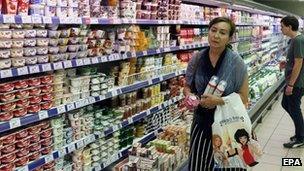
I do not see a tragedy in the food embargo when Russia's state interests are at stake.
Even more, the embargo will be beneficial in the long run. It will give an impetus to revive Russia's own food production, will repress corruption connected with the food industry, and will diminish the threat of food overconsumption and related obesity epidemics.
The embargo will enhance Russia's psyche, national ideal, and will boost national pride.

Yuri Alexandrov, St Petersburg, Russia
I'd being living in the UK with my family for quite a while, but we decided to go back to Russia some time ago.
These sanctions mean not much at all. Most day-to-day food can be sourced locally and most of the time we buy locally produced meat and vegetables anyway.
I would probably miss milk products from Finland but it's not the end of the world. We used to have quality milk from local factories.
I really hope those sanctions show to Europe that Russia and Western Europe have much more in common rather than our overseas friend, the US.

Andrey Briouhan, Moscow, Russia

"I will miss Czech beer," says Andrey Briouhan
It seems the US and EU food embargo will not have big effect on Russian citizens, maybe some lack of specific kinds of goods.
There will be more reorientation toward customs unions, especially with Belarus. Now Poland can exchange apples for fish with Baltic countries instead.
As for me: I almost do not buy US and EU food. I will miss Czech beer, though, maybe some kind of meat.

Viktoria Ivanova, St Petersburg, Russia
We'll easily survive without fruits and vegetables from the EU. Russian dairy and meat products are better and tasty and cheaper.
We don't buy tasteless cucumbers and tomatoes from Spain and Holland. Vegetables and fruits we can buy from Belarus, Turkey, China, Uzbekistan, Kazakhstan and non-EU countries.
Dear citizens of Europe, we will survive without your products. Will you survive without Russian money?
Written by Richard Irvine-Brown
- Published7 August 2014
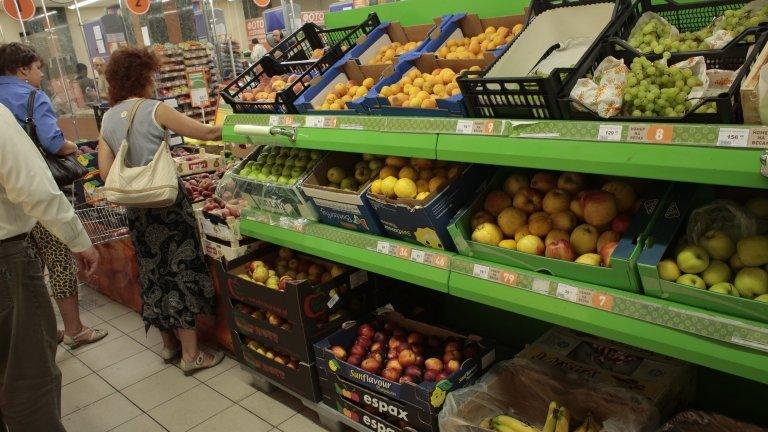
- Published1 August 2014
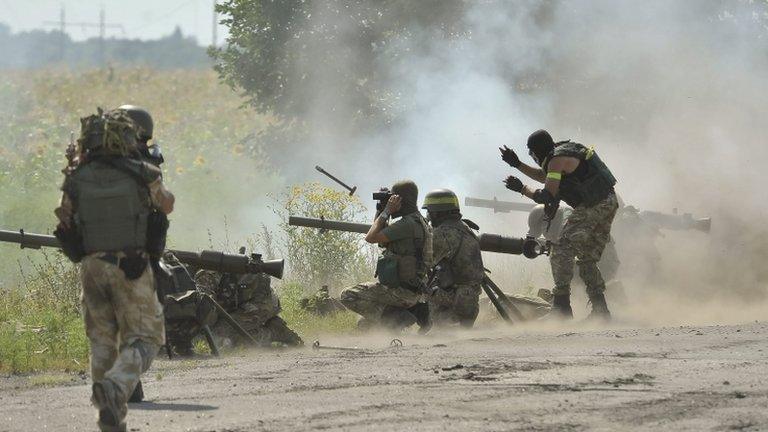
- Published30 July 2014
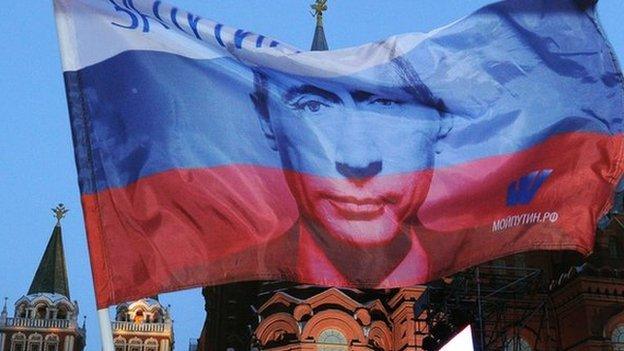
- Published1 August 2014
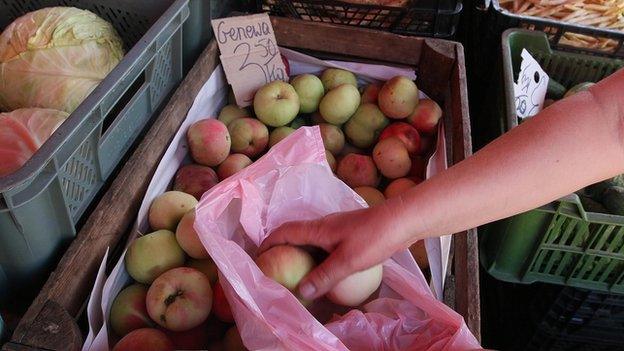
- Published31 July 2014
